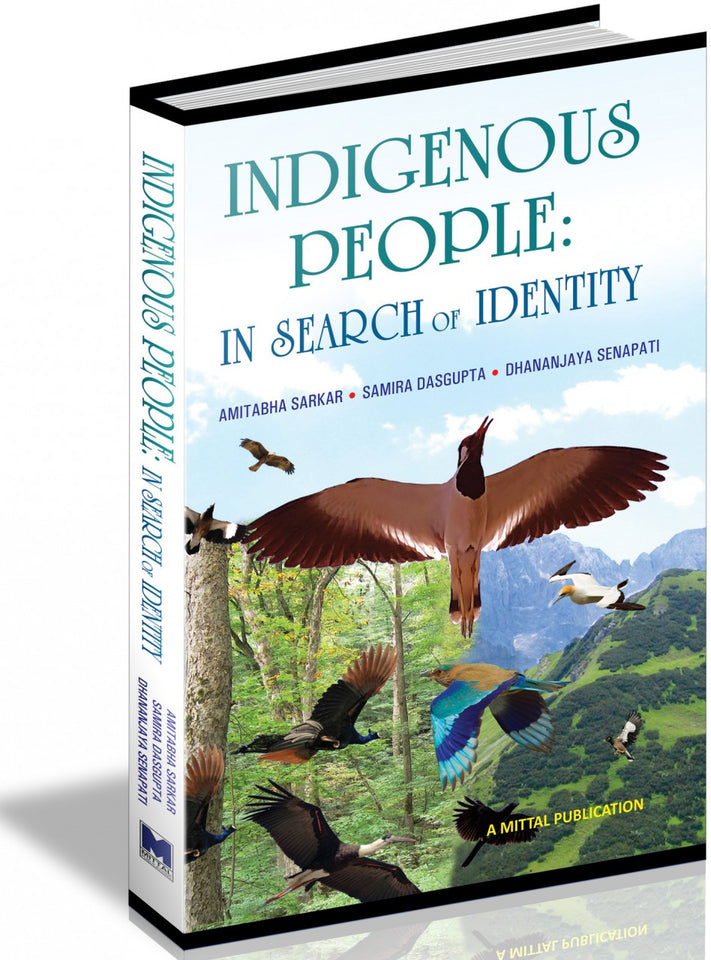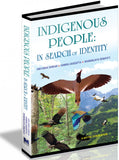Indigenous People: In search of Identity
Regular price
Rs. 400.00
The present study carried out at Kandhmal district of Odisha which was once famous for human sacrifice to appease darni—the earth deity; in fact in the name of such sacrifice chiefly female infanticide was practised by the Kandh and Pano community which was known as merriah. The present empirical study at the hilly-forest terrain of Kandhamal among the Pano or Kui Domanga community, categorized as Scheduled Caste—the stigma of untouchability has been imposed without any valid reason. Earlier the Pano was categorized as Hill Tribe and till our investigation all the tribal characteristics are very much evident among them; the cultural attributes are also equally practised and applicable to their immediate and inalienable neighbour –the Kandh, who is Scheduled Tribe. The inclusion and exclusion of a community largely depending on birth, descent and kinship which are examined in the treatise. The present treatise will highlight their myth, distinct belief system, customary laws, the concept of purity and pollution nullified in view of their participation in most sacred and important ritual activities—kedu laka or buffalo sacrifice instead of earlier human sacrifice, to appease earth deity-the darni. The indigenous cultural roots of Pano or Kui Domanga also speaks about the claim of and inclusion of them as Scheduled Tribe like the Kandh. The administrators, planners and concerned officials of NGOs will get an insight view of social reality which will enable them in refining their approach of understanding the problem and also may extend their endorsement in favour of Scheduled Tribe status.
AMITABHA SARKAR (b. 1952) is M.Sc., Ph.D (Science) in Anthropology from the University of Calcutta and specialised in advanced Social-Cultural Anthropology. His remarkable empirical contribution in anthropological research arena is on impact of industrialisation, tribal ethnography, culture ecology, ethno-science, religious belief system being integrative process and cultural change, management of environment with traditional knowledge. He has published about fourteen books and more than one hundred research papers in reputed journals. He possesses 35 years research experience and carried out empirical study among tribals and weaker section of Rajasthan, Gujarat, Jharkhand, Chhattisgarh, Odisha and West Bengal. He is the life member of INCAA, Indian Science Congress Association and Indian Anthropological Society and Society for Indian Medical Anthropology. He was associated with Anthropological Survey of India from 1977 to 2012. (MRS.) SAMIRA DASGUPTA (b. 1953) is M.Sc., Ph.D (Science) in Anthropology from the University of Calcutta. She has specialised in Cultural Anthropology and her noteworthy contributions are on culture ecology, role and status of tribal women in unorganised sector, tribal ethnography, ethno-science, religious belief system, traditional knowledge system among the tribals and cultural tourism etc. which deserve praise in academic arena being a perceptive researcher. She has published eleven books and about ninety-five research papers in various reputed journals of the country. She possesses 35 years research experience and carried out intensive field work among various tribal communities and weaker section of Rajasthan, West Bengal, Chhattisgarh, Odisha and Jharkhand. She is a life member of INCAA, Indian Science Congress Association, Indian Anthropological Society and Society for Indian Medical Anthropology. She was associated with Anthropological Survey of India from 1977 to 2013 and carried out several research projects for ASI where during XIth Plan Period she was involved with the study of Tangible and Intangible Cultural Heritage— Traditional Knowledge System: Ethno Medicine. She is now consultant researcher and involved in generating empirical data from tribal areas of Odisha. DHANANJAYA SENAPATI (b. 1980) is a post graduate in Mass Communication and Journalism from Makhanlal Chuturvedi University, Bhopal. He is a son of the soil of Kandhamal, Odisha and engaged in social work among the marginalised people especially among the tribals. Presently, he is involved in ‘Development of Livelihood Practices’ among the marginalised people of Odisha.
Guaranteed Safe Checkout





